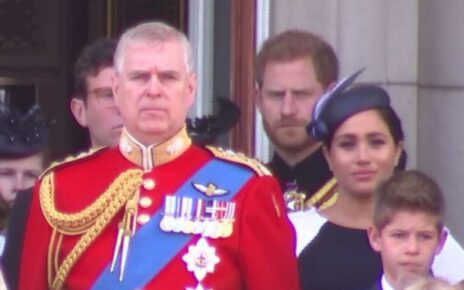MILLIONS of families on Universal Credit will get a pay rise in April 2024 when benefit rates go up.
Benefit payments will rise by 6.7% from April, in line with the consumer price index (CPI) level of inflation for September 2023.
But key documents published by the government since the announcement reveal that the benefits cap will remain frozen at its current level – meaning 85,000 could be up to £53 worse off.
The threshold is a limit on the total amount households can get.
However, those not affected by the cap could still be at least £470 better off from the rise in Universal Credit payments.
But remember, the exact amount your payments will rise by will depend on whether you qualify for extra elements as well as your financial circumstances.
Read more in money

Exact date millions will get next cost of living payment worth £299 revealed

I tested Christmas yule logs – the winner 'perfects the ratio' and beats M&S
Don't forget to check that you're getting all the benefits you're entitled to by using a free benefits checker, as this could boost your budget more.
Here are the new Universal Credit rates for 2024-25 so you can check how much extra you might get
Universal Credit
Standard allowance (per month)
- For those single and aged under 25, the standard allowance will rise from £292.11 to £311.68
- For those single and aged 25 or over, the standard allowance will rise from £368.74 to £393.45
- For joint claimants both under 25, the standard allowance will rise from £458.51 to £489.23
- For joint claimants where one or both are 25 or over, the standard allowance will rise from £578.82 to £617.6
Most read in Money

Exact date millions will get next cost of living payment worth £299 revealed

Martin Lewis shares ‘easy deal for everyone’ which cuts energy bills by £100s

Fraudster who sold TV’s Aggie MacKenzie house from hell caged for 7 years

Full list of new benefit rates revealed ahead of April 2024 rise
Extra amounts for children
- For those with a first child born before April 6, 2017, the extra amount will go up from £315 to £333.33
- For those with a child born on or after April 6, 2017 or second child and subsequent child, the extra amount will go up from £269.58 to £287.92
- For those with a disabled child, the lower rate addition payment will rise from £146.31 to £156.11 and the higher rate from £456.89 to £487.58
Extra amounts for limited capability for work
- For those deemed to have limited capability for work (LCW), the lower rate amount will go up from £146.31 to £156.11
- The higher rate for LCW will go up from £456.89 to £487.58
- For those deemed to have limited capability for work or work-related activity, the extra amount will go up from £390.06 to £416.19
Extra amounts for being a carer
Universal Credit claimants can get an additional amount if caring for a severely disabled person for at least 35 hours a week.
The amount you get a month will rise from £185.86 to £198.31
The work allowance rates will also rise in April next year.
Extra amounts for childcare
- The maximum rate for one child will increase from £950.92 to £1014.63
- The maximum amount for two or more children will rise from £1,630.15 to £1,739.37
Increased work allowance
- The higher work allowance (no housing amount) for someone claiming Universal Credit with one or more dependent children or limited capability for work will rise from £631 to £673
- The lower work allowance for someone claiming Universal Credit with one or more dependent children or limited capability for work will rise from £379 to £404
What is Universal Credit?
Universal Credit is a welfare scheme which was designed to combine a number of old "legacy benefits" into a single monthly payment.
The old legacy benefits it replaced are:
- Child tax credit
- Housing benefit
- Income support
- Income-based jobseeker's allowance (JSA)
- Income-related employment and support allowance (ESA)
- Working tax credit
Who is eligible for Universal Credit?
Whether you are eligible will depend on your specific circumstances.
You may be eligible if you meet all of the following criteria:
- you’re on a low income or out of work
- you’re 18 or over (there are some exceptions if you’re 16 to 17)
- you’re under State Pension age (or your partner is)
- you and your partner have £16,000 or less in savings between you
- you live in the UK
Your partner’s income and savings will be taken into account, even if they are not eligible for Universal Credit.
There are other factors that might make you eligible for a claim, for instance, if you care for a disabled person, you're in further education or you've recently had a child.
You can read the full eligibility criteria on the government's website.
How to apply for Universal Credit
Applying for Universal Credit should be relatively easy.
You have to go online and create an account, then there are further steps to take.
Creating an account
Once you've created an account you must make a claim within 28 days otherwise you'll have to start again.
If you live with your partner, you'll both have to create accounts and you'll join them together when you claim.
If you're struggling to claim online you can use the Universal Credit helpline which is 0800 328 5644.
What you'll need
To apply online you'll need your bank, building society or credit union account details.
On top of this, you'll need an email address and access to a phone.
If you don't have these things, you can call the Universal Credit helpline or go to a job centre.
To find your nearest job centre, you can use its website.
Read more on The Sun

I’m A Celeb’s Fred Sirieix reignites Josie feud as he brutally slams her AGAIN

Our energy bill is £5 living in a van – petrol costs barely make a dent
After you've offered your bank details, you will have to provide your driving licence, passport, debit or credit card and payslip of P60.
In addition, you'll need to prove how much rent you pay, your earnings, any disability or health condition that affects your work, how much you pay for childcare and your savings and any investments, such as shares or a property you rent out.
Source: Read Full Article



